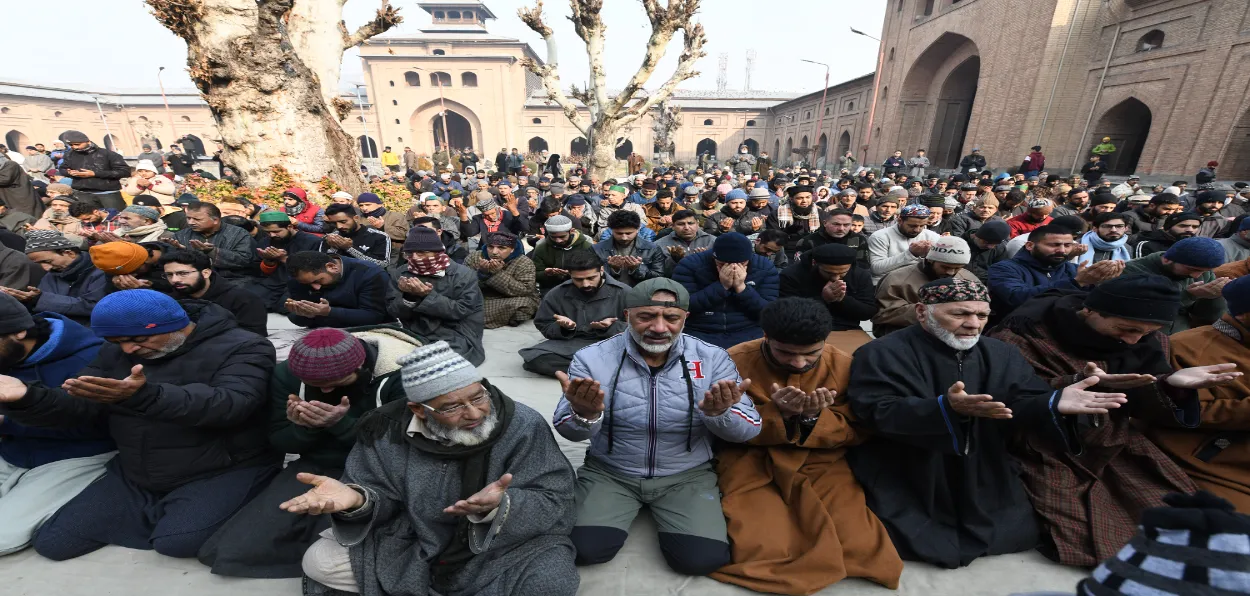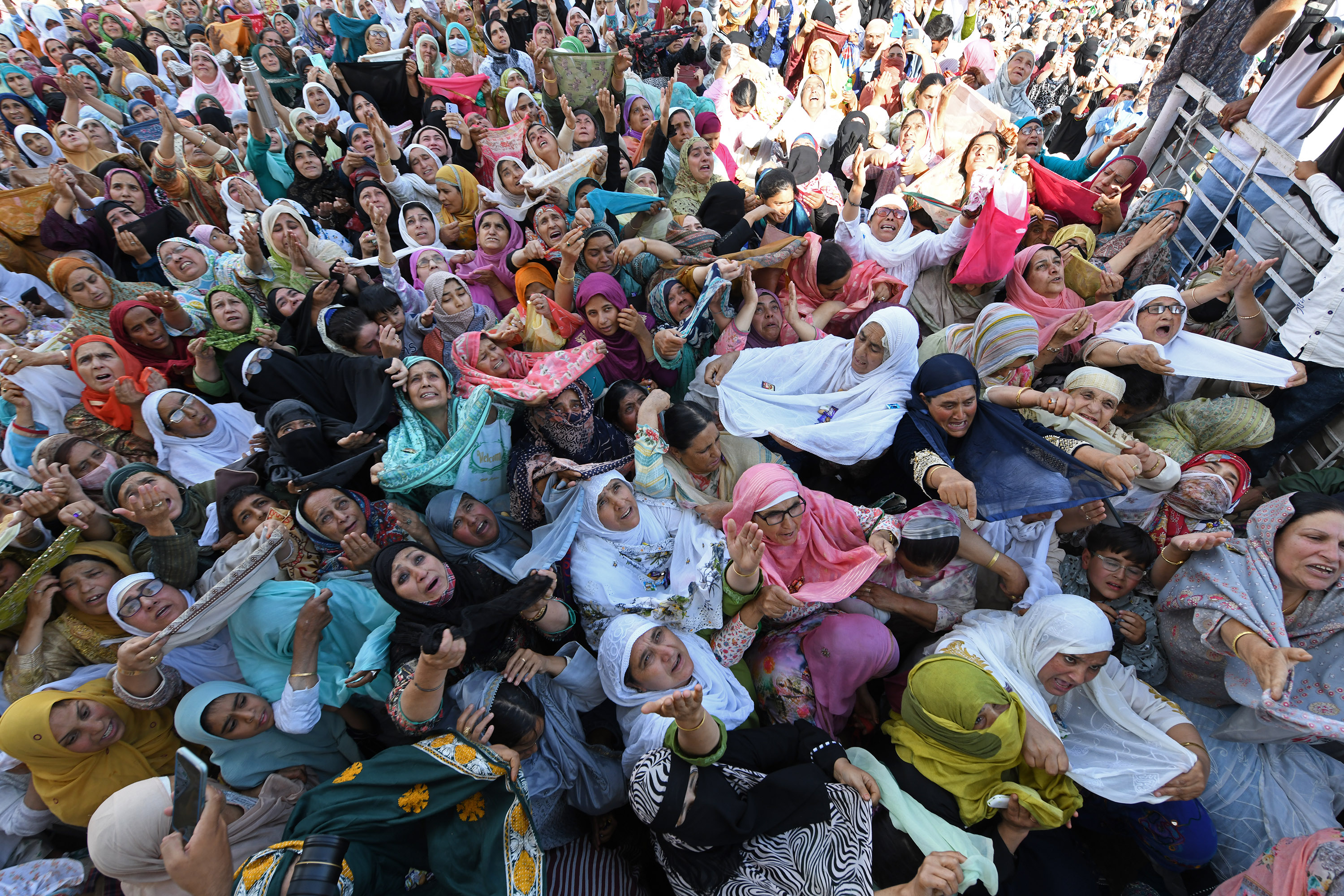
Amir Suhail Wani
Change is the fundamental facet of human life and the world we live in. Everything in this world is subjected to the inexorable laws of change and evolution. In modern times, change is majorly linked to developments in human knowledge. The systems which do not respond to the change are either erased or exist in a static state. Modern science and philosophy have come to understand and appreciate the importance of change.
Islam, as a religion, incorporates the practices best suited for the welfare of mankind and always stands for its amelioration of human situation, social progress, and the overall development of the human sphere. Islam has given due importance to the mundane issues faced by its followers and keeps them in constant touch with changes happening around them. Islam believes in self-renewal and in changes in the domains of legislation, Jurisprudence, social organization, economic outlook, etc. In the modern world, Islam has come under scrutiny for its advocacy of Pardah, Polygamy, Gender Segregation, opposition to modern education, and its adherence to outmoded systems of legal and judicial thought.
In this article, we will explore how Muslim modernists have tried to address these issues; Islam’s intrinsic dynamism, its emphasis on reason and rationality, and human welfare.
Islam places the highest emphasis on the faculties of human rationality, reasoning, and capacity to navigate the everyday affairs of the world. The Prophet of Islam told his followers that “You are better equipped to handle the worldly affairs on your own”, thereby signifying the importance of human agency and the power of ratiocination inherent to each human. In more than one place, the Quran exhorts its followers to exercise rational and logical faculties to mend the forces of nature for their betterment and to create a just, equitable, and progressive society based on the principles of human dignity and the betterment of mankind. Islam was so confident of the human faculties of reasoning and rationality that it laid down only the broader outlines of the social and legal outlook for its followers in its holy book – the Quran - and left for them to appropriate and develop these principles in detail by their particular context.
Quran is fully aware of the diversity of human existence and accords due value to the changing socio-economic and legal paradigms. It thus avoided laying out the details and instead chartered the broader outlines and guidelines to make laws and live accordingly. With the great codifiers of Islamic Jurisprudence like Imam Abu Hanifa, Al-Shafa’i, and a few others, the Muslim world faced stagnation as they blocked further roads to contemplation, exegesis, and explication.
 Muslims praying at Hazratbal shrine, Srinagar
Muslims praying at Hazratbal shrine, Srinagar
The later Muslims canonized these theologians/legists and took their words and writing as final, thereby denying the Islamic way of critical thinking and independent evaluation. Muslims also failed to realise that these scholars were conditioned by a specific socio-historical context and their inferences and deductions could not be taken as timeless, eternal, and infallible dictums. The Muslim obsession and absolute following of classical jurists killed the spirit of Ijtehad (Creative rational thinking) and pushed Muslims into backwardness and intellectual inertia.
What to do?
The first task, therefore, before Muslims is to free themselves from the yoke of medieval legalism and stagnant legislation which has run its course and seems inadequate to address the issues of the modern world. It is evident on the surface it that these works in Islamic Jurisprudence (Fiqh) were taken up at a time when the social, economic, and political conditions were entirely different than they exist in today’s world.
Muslim reformers like Muhammad Abuh, Rashid Rida, Sir Syed Ahmad Khan, Khalifa Abdul Hakim, Chirag Ali, Abul Kalam Azad, Taha Husayn, and Shibli have said this. They insisted on modernising, reforming, reinterpreting, and reconstructing the Islamic legal and Jurisprudential system keeping in mind the needs and necessities of the modern world. They said that we will borrow the light from our ancestors, but we will have a candle of our own. We duly acknowledge the merits of our classical scholars and recognize the efforts to address the issues that confronted their times, but we must be alert that they can’t be imported to the modern world without necessary changes and calibrating their efforts to the conditions of the modern world. Modern reformists like Arkoun, Shahroor, Abou Fadl, Tariq Ramadan, and others have also spoken along these lines. All of them want to pull Islam out of the morass and imbibe in it the modern values of egalitarianism, eclecticism, theistic humanism, and epistemological pluralism.
Let’s look into some particular issues to see what Islam’s true stand on these subjects is. A general notion is that Islam suppresses women, stifles their freedom, and assigns them an inferior status. Even a cursory look at the conditions of Arabia, when Islam advocated women’s rights will bring home the fact that Islam has been a great protagonist of women’s rights. The Prophet of Islam took every possible measure within the Arabian society of his time to restore women their rights and dignity. Nobody can reform a society beyond a point. Thus Prophet focussed his attention on the basic rights of women like property rights, the right to divorce, having a spouse of one’s choice, and restoration of fundamental rights that were missing from the barbaric society of that time. To compare these measures with the prerogatives of the 21st-century feminist movement to discredit the revolutionary efforts of the Prophet is intellectual dishonesty and distortion of reality.
However, in modern times, Muslim feminist scholars like Lyla Ahmed, Kecia Ali, Amina Wadood, etc. have done a feministic interpretation of Islam. They have discovered complete compatibility between the modern-day values of liberation and the Quranic injunctions on gender. Through closer reading of the text, they have come up with a liberating praxis, which they believe is in continuation of the mission of Prophet Muhammad but forgotten by immediate generations. They are also challenging the classical juristic rulings which underlie gender asymmetry. However, a caveat is to be placed here lest these passages be misunderstood.
 Muslim women praying in Srinagar, Kashmir
Muslim women praying in Srinagar, KashmirIslam, no doubt reformatory in its outlook, espouses a certain moral and ethical outlook and there is no compromise on it. While Islam allows women to study and work in environments of co-education and workplaces, it strictly warns against immodesty and immoral behaviour. Another throbbing issue is polygamy. To be precise, Islam doesn’t advocate polygamy but permits taking up to four wives in certain cases and with certain preconditions. When these rulings were revealed, society was facing wars and killings in which too many men died leaving behind highly vulnerable women.
Amir Ali is opposed to polygamy lest it is necessitated by social circumstances. He adds that polygamy is as much opposed to the genuine teachings of the Prophet as it is opposed to human progress in general. The need for polygamy in the early centuries of Islam arose on account of certain socio-historical circumstances. The same is the opinion espoused by Sir Syed Ahmad Khan who sees monogamy as the norm and polygamy as an exception. Muhammad Iqbal, the poet and philosopher, says, “The institution of polygamy needs reform. Its permission in early Islam was based on sound spiritual reasons. Moreover, political and economic conditions in early Islam demanded that polygamy should be allowed. But the socioeconomic conditions of modern life demand that polygamy should be abolished”.
It’s the same about Purdah or the seclusion of women. Amir Ali writes Prophet discovered the practice of Purdah among Persian and other cultures and found it a suitable measure of ensuring social modesty and decorum. He further says the Prophet never encouraged the seclusion and social isolation of women. Scholars like Chirag Ali, Sir Syed, and Iqbal have favoured Purdah, but are categorical in maintaining that this shall not impede the social inclusion and the overall progress of women.
What has been said concerning the Islamic perspective on women's emancipation holds in the same spirit in the case of Islamic emphasis on pursuing physical and positive sciences and harnessing the merits of modern technology? The Muslims' indifference and apathy to modern knowledge generated particularly in the Western academia kept Muslims and bay and closed to them the avenues of social and material progress. It was to this end that Sir Syed exerted all his efforts and tried to inculcate in Muslims the spirit of learning and benefitting from modern advances in science, technology, and other disciplines. It needs to be reiterated that Islam places the highest emphasis on the acquisition of knowledge without creating the fake binaries of Worldly/Spiritual knowledge. It instead weaved the entire episteme into a holistic unit and exhorted its followers to drink from the fountains of knowledge, wherever they find them.
ALSO READ: Muslims must reclaim rich legacy of scientists and their Inventions in Middle ages
Thus in its early phases, Islam produced geniuses like Ibn Sina, Ibn Rushd, Farabi, and Al Ghazali, who conquered the realms of physical and spiritual sciences. The later day Muslims distanced themselves from the positive sciences, under the influence of the rule of clergy and this led to their eventual downfall. In modern times, scholars like Raji Al Faroqui, Malik Binnabi, and Naquib Ul Attas have again reminded Muslims of the importance of physical and social sciences in addition to the prevalent traditional religious sciences. This change is sure to steer Muslims on the path of enlightenment and emancipation.
